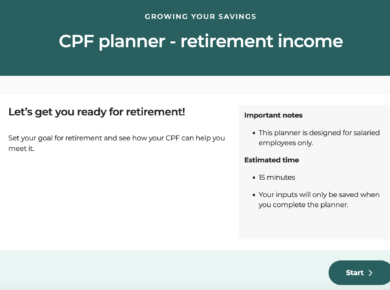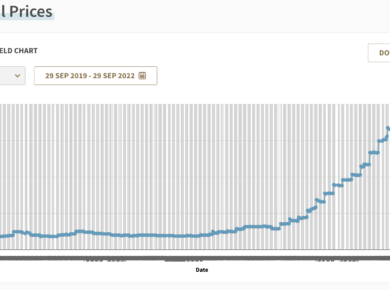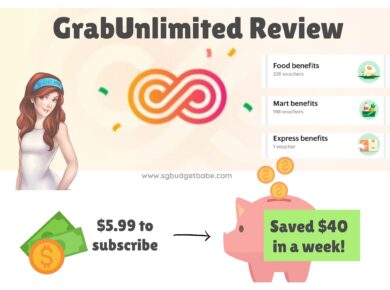All OCBC credit card holders take note!

Even the NTUC Visa is affected, from $60 to $100. Wow. Thanks OCBC, thanks.
Remember what I said about banks not being your friends? And also on credit card debt and why it's scarier than you think. You gotta look out for your own interests man. What, did you honestly believe your banker when he made you recommendations stating that he was "helping" you? 😑 💂
#dayrefinance #dayreshopping
——————————————
Common Interview Questions
Continuing from yesterday as I promised!
Interview questions will naturally vary according to the company and role you're applying for, but there are some key constants that I've observed over the years that never seem to change.
1. Tell us about yourself.
This is a common opening question to help break the ice and enable the interviewer to get a glimpse of what kind of person you're like.
Every candidate whom we interviewed this week spoke about their last job / career, which isn't too bad an answer, but I always feel like there's more to a person than just work.
You could talk about your education major, your work, your hobbies (relevant ones would be best -you probably won't want to mention gaming, alcohol or smoking here…can just leave out if it doesn't add value to your interview).
I like to also talk about how I'm the eldest in my family, because many people have the impression that eldest siblings are mature responsible and independent. If I'm married with kids, I would talk about that too cos family is important.
Talking about how you love food might not be a bad idea too #dayrefatties after all, it IS a national pastime!
2. What do you know about our company?
As briefly mentioned in @sgbudgetbabe:180817
A good template answer that might help you to structure your answer :
"From what I understand, (insert company name) is in the business of (insert product or service offering) to (insert target customers or markets). You've been around for XX years, and you're known for (insert interesting tidbit or reputation). I would love to be a part of this because (insert reason)."
3. Why do you want this job?
You may be applying to your dream company but if you don't fit the role expectations, then obviously the company will be less inclined to hire you instead.
If you're applying for a finance role, what prior finance background do you have? If you're applying to join the HR department, what skills can you bring to the job?
Read the job description carefully and structure your answer such that it fits what they're looking out for. For instance, you might want to highlight how you pay a lot of attention to detail and you're good with multi-tasking while meeting deadlines if you're applying for a secretarial role?
We had one candidate whom we axed immediately from the interview rounds because she said she didn't like doing admin work, when the role clearly called for it 💂
4. What are your strengths and weaknesses?
I guess if you love makeup #dayrebeauty #letstalkmakeup and your role is client-facing, no harm mentioning that cos it could show you put in effort to look good, but if it is an internal role, it may potentially come off as superficial?
The general rule of thumb is that since you can't predict what sort of impression or judgments the interviewer will make of you, so always PLAY SAFE.
Some examples of good strengths:
– team player
– independent
– fast learner
– adapt well and quickly to new environments
– meticulous
For weaknesses, I would be as honest as possible. Please don't try the trick of disguising your strengths and weaknesses k! The lame answer of "oh I'm a perfectionist I must make sure my work is perfect" is so overused that your interviewer will probably roll their eyes lor.
The point of sharing your weaknesses is really to see how you adapt and overcome areas that you're weak in. For instance, you could say something like:
"I tend to be overly critical of myself and my own work. It also gets difficult when I try to please everyone in the the team and make sure everyone likes me."
Or you could also talk about how you're not very tech-savvy or that you do not know how to code. Make sure you follow up after with what you do to try and overcome these limitations. It's okay to not be the IT savviest person around, especially when you're not applying for an IT or systems engineer job!
5. Company culture based questions
Different companies have different corporate cultures and HR tends to look for candidates who would fit well into the current ecosystem. If the company has a young, vibrant and creative culture but you're someone who likes doing things to a T according to the book, you may not fit in well and could be unhappy working there even if you get the job.
My team, for instance, values independent workers who are also problem-solvers, so our interviews tend to evolve around asking questions that would give us an insight into whether the candidate fits the type of personality we are looking out for.
6. Scenario-based questions
An increasing trend these days involve the asking of scenario-based questions in order to see how the candidate reacts and deals with them!
For such questions, don't worry about having the "perfect answer", because you're not always expected to know what to do especially since you haven't received job training.





